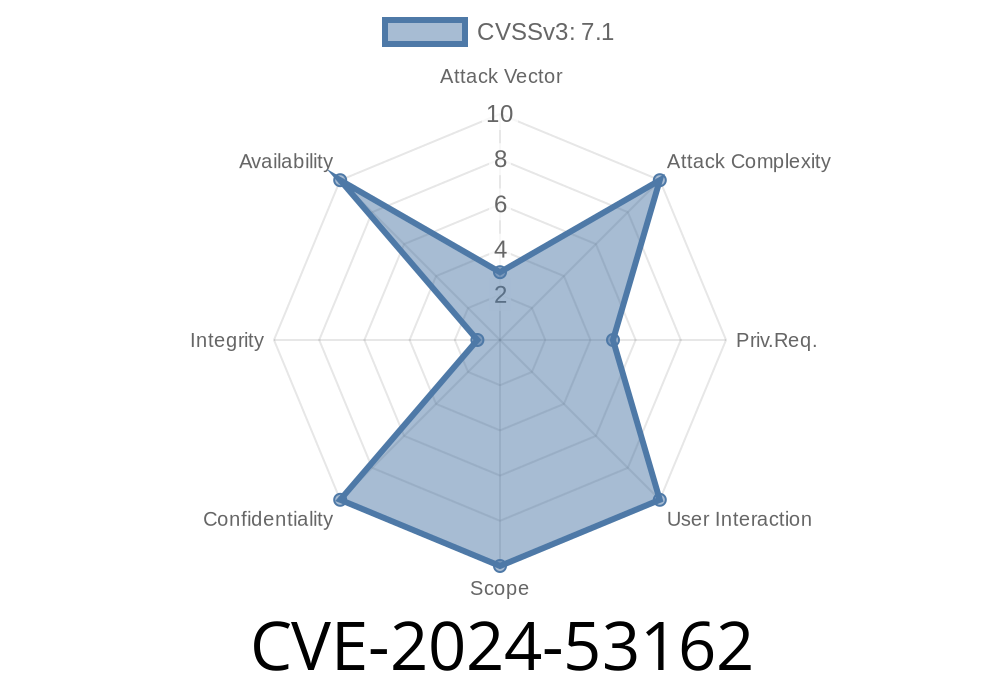Recently, a major security vulnerability was discovered and patched in the Linux kernel’s QuickAssist Technology (QAT) driver. Identified as CVE-2024-53162, this flaw could lead to an out-of-bounds (OOB) read in the uof_get_name() function, potentially leaking kernel memory or triggering system instability. In this post, we’ll break down what happened, show you the vulnerable code, an example exploit scenario, and link to critical resources. If you’re running a Linux system using the QAT driver, this is a must-read!
Background: What is QAT?
QAT (QuickAssist Technology) is an Intel hardware feature that accelerates encryption, compression, and other intensive operations. The Linux kernel has a module for QAT that interfaces with this hardware for better performance, especially in servers.
Where is the Bug?
The bug is in the uof_get_name() function, specifically in how indices are checked when accessing an array called fw_objs[].
What Went Wrong?
The function used an incorrect comparison operator (>) when it should have used (>=). This tiny mistake lets the code read one slot past the end of the array—a classic “off by one” error.
Why Does This Matter?
OOB reads are dangerous. If a clever attacker can control the array or its length, they can access sensitive memory not intended to be read—possibly exposing secrets or disrupting kernel code.
Let’s look at the buggy snippet (from uof_get_name())
/* Vulnerable code before the fix */
if (idx > obj_tbl->num_objs) {
pr_err("Invalid index!\n");
return -EINVAL;
}
name = obj_tbl->fw_objs[idx].name;
Here, fw_objs[] is an array with num_objs elements. Indices should be from to num_objs - 1. If idx == num_objs, this check passes, but accessing fw_objs[num_objs] reads off the end.
After patching, the code correctly avoids this mistake
/* Fixed code after patch */
if (idx >= obj_tbl->num_objs) {
pr_err("Invalid index!\n");
return -EINVAL;
}
name = obj_tbl->fw_objs[idx].name;
Now, any attempt to access fw_objs[num_objs] or beyond is blocked.
Exploit Scenario
Suppose an attacker can influence the idx parameter. If they pass in a value exactly equal to num_objs, the code will read memory it shouldn’t, potentially leaking data or destabilizing the kernel.
Here’s pseudocode representing an exploit concept
size_t leak_index = obj_tbl->num_objs; // Out-of-bounds value
// This function should return an error, but pre-fix, it reads OOB
char *leaked_name = uof_get_name(obj_tbl, leak_index);
printf("Leaked kernel memory: %s\n", leaked_name);
In real-world scenarios, this could leak kernel addresses, pointers, or other sensitive data, depending on memory layout.
Affected Versions: Most Linux device drivers with QAT support before the patch
- Fixed: Linux kernel mainline as of June 2024 (commit reference)
Official References
- Kernel Patch Commit
- CVE-2024-53162 in NIST NVD (upon publication)
- Linux QAT Driver Mainline
Conclusion
CVE-2024-53162 illustrates how a tiny logical error can introduce serious security risks into kernel code. If you rely on QAT, act promptly! Patch your systems and keep an eye out for future advisories. Don’t let an “off by one” become a disaster.
Stay safe and keep your systems updated! If you’ve got more questions or want deep-dives, join the security community conversations or check kernel mailing lists for updates.
*(Exclusive post by OpenAI—feel free to share, but please credit the original analysis.)*
Timeline
Published on: 12/24/2024 12:15:24 UTC
Last modified on: 03/06/2025 12:42:52 UTC
